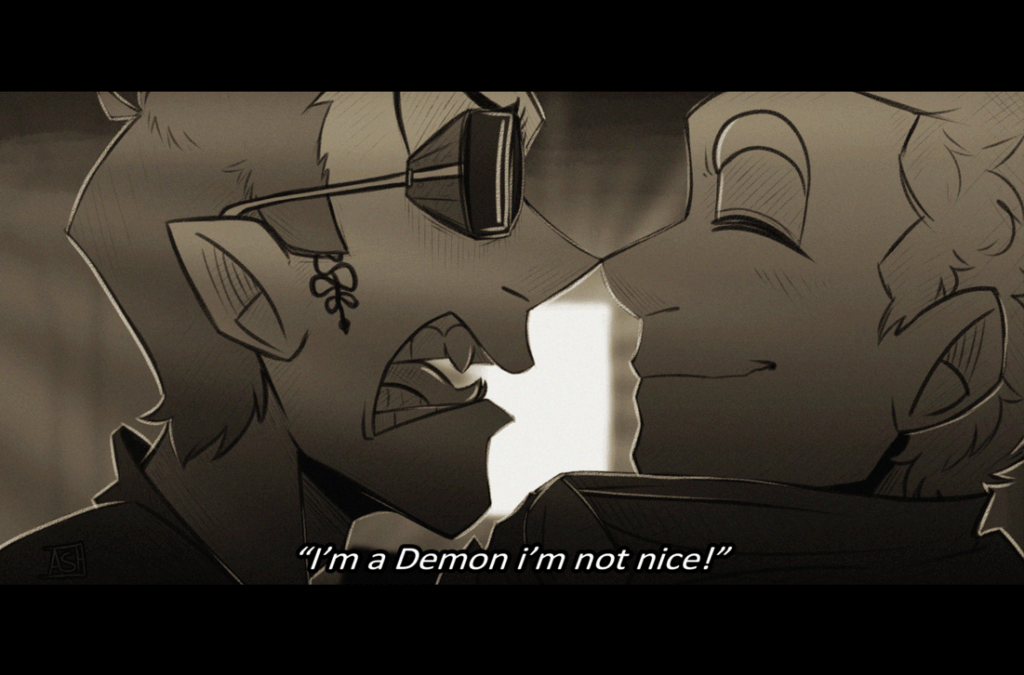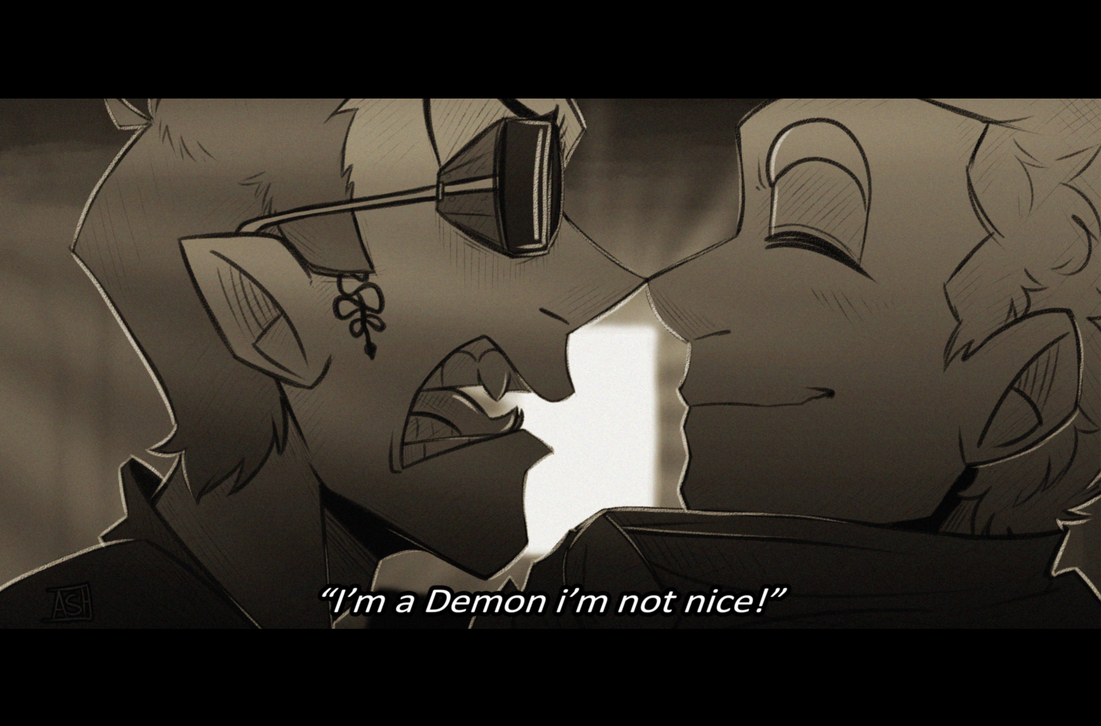
The Dichotomy of Crowley: Exploring the Demon in Good Omens
Neil Gaiman and Terry Pratchett’s *Good Omens* presents a unique take on the age-old battle between Heaven and Hell. At the heart of this narrative lies Crowley, a demon who, despite his infernal origins, embodies a complex and often contradictory character. This article delves into the multifaceted nature of Crowley, examining his role in the series, his relationships, and the ways in which he challenges traditional notions of good and evil. We will explore how this particular **demon**, a central figure in **Good Omens**, navigates the complexities of morality and free will, ultimately questioning the very definitions of **demon** and angel.
Crowley: More Than Just a Demon
Crowley, originally Crawly, an angel who ‘fell’ rather than being cast out, stands as a fascinating study in character development. Unlike the stereotypical depiction of demons as purely malevolent beings, Crowley possesses a sardonic wit, a deep appreciation for human pleasures (particularly fast cars and Queen), and a surprising capacity for affection. His relationship with the angel Aziraphale is the cornerstone of *Good Omens*, a testament to the idea that friendship and understanding can transcend even the most fundamental ideological divides. This **demon**, this Crowley, is far from the simple evil often associated with his kind. He’s a nuanced character shaped by experience and, perhaps, a lingering trace of his angelic past.
His initial assignment, tempting Eve in the Garden of Eden, seems to have been more a matter of fulfilling orders than a genuine desire to corrupt humanity. Over the centuries, Crowley’s interactions with humans have led him to develop a certain fondness for their ingenuity, their art, and their capacity for both great good and terrible evil. He’s a demon who enjoys the finer things in life, a trait that often clashes with the rigid structures and expectations of Hell. The series cleverly uses Crowley to subvert expectations about what a **demon** should be, painting him as a reluctant participant in the apocalyptic game.
The Unlikely Friendship: Crowley and Aziraphale
The dynamic between Crowley and Aziraphale is the emotional core of *Good Omens*. Their centuries-long association, born out of a shared appreciation for humanity and a mutual desire to avoid Armageddon, blossoms into a deep and abiding friendship. They cover for each other, protect each other, and ultimately choose each other over their respective sides. This bond challenges the fundamental premise of the conflict between Heaven and Hell, suggesting that cooperation and understanding are possible even between sworn enemies. Their relationship goes beyond mere tolerance; it is a genuine affection that highlights the absurdity of the cosmic war they are caught in. The very existence of this friendship, a **demon** and an angel, is a rebellion against the established order.
Their contrasting personalities – Crowley’s cynicism and Aziraphale’s optimism – create a compelling and often humorous dynamic. They complement each other, balancing each other’s flaws and reinforcing each other’s strengths. While Aziraphale represents the more traditional virtues of kindness and compassion, Crowley provides a pragmatic and often cynical counterpoint, questioning the motives and methods of both Heaven and Hell. Together, they form a formidable team, capable of outsmarting both the forces of good and evil.
Challenging the Dichotomy of Good and Evil
*Good Omens* does not present a simplistic view of good versus evil. Instead, it explores the gray areas of morality, suggesting that individuals are capable of both great acts of kindness and terrible acts of cruelty, regardless of their allegiances. Crowley, as a **demon** who actively chooses to defy Hell’s expectations, embodies this complexity. He is not inherently evil; he is a product of his environment and his experiences. His actions are often motivated by a desire to protect his friend and prevent the end of the world, rather than by a desire to inflict suffering. This nuanced portrayal of a **demon** forces the audience to question their preconceived notions about good and evil.
The series also satirizes the bureaucratic nature of both Heaven and Hell, highlighting the absurdity of their rigid hierarchies and their often-arbitrary rules. Crowley’s disdain for the bureaucracy of Hell is evident throughout the series. He finds the endless paperwork and the pointless tortures tedious and unfulfilling. He prefers to enjoy the pleasures of the world, indulging in fast cars, fine wine, and good music. His rebellion against the established order is not necessarily motivated by a desire to do good, but rather by a desire to avoid boredom and maintain his own autonomy. However, his actions often have positive consequences, further blurring the lines between good and evil.
Crowley’s Transformation: From Fallen Angel to Reluctant Hero
While Crowley starts as a **demon** carrying out the orders of Hell, he undergoes a subtle but significant transformation throughout *Good Omens*. He gradually develops a sense of responsibility for the world and its inhabitants, particularly for Aziraphale. His actions become increasingly motivated by a desire to protect those he cares about, even if it means defying his superiors and risking his own existence. This transformation is not a sudden conversion to good, but rather a gradual awakening of his conscience. He is still a **demon**, but he is a **demon** with a heart.
His willingness to sacrifice himself to save Aziraphale in the finale is a testament to his character development. He chooses to face the consequences of his actions, even though it means risking eternal damnation. This act of selflessness demonstrates that he is capable of genuine love and compassion, qualities that are not typically associated with demons. In the end, Crowley proves that even a **demon** can be a hero, challenging the traditional narrative of good versus evil and offering a more nuanced and hopeful vision of humanity’s potential.
The Enduring Appeal of Crowley
Crowley’s popularity stems from his relatability. Despite being a **demon**, he grapples with universal themes of friendship, loyalty, and the search for meaning in a chaotic world. His wit, his cynicism, and his love for the finer things in life make him an engaging and entertaining character. He is a reminder that appearances can be deceiving and that even the most unlikely individuals are capable of surprising acts of kindness and courage. He is a **demon** who defies expectations and challenges the status quo, making him a compelling and unforgettable figure in the world of *Good Omens*. The complexities of this particular **demon** make him a fascinating character.
The portrayal of Crowley in *Good Omens* has resonated with audiences worldwide, sparking discussions about morality, free will, and the nature of good and evil. His character serves as a reminder that judging individuals based on their origins or affiliations is often misleading and that true understanding requires looking beyond superficial labels. Crowley, the **demon**, is a testament to the power of friendship, the importance of questioning authority, and the enduring hope for redemption, even in the most unlikely of places.
Ultimately, the story of Crowley, the **demon** in *Good Omens*, is a story about choice. It’s about choosing friendship over dogma, choosing compassion over cruelty, and choosing to fight for what you believe in, even when the odds are stacked against you. His journey is a reminder that even in a world divided by seemingly insurmountable differences, there is always the possibility for connection, understanding, and ultimately, hope. [See also: Good Omens Season 2 Review] [See also: The Angels of Good Omens] [See also: Neil Gaiman’s Best Works]

